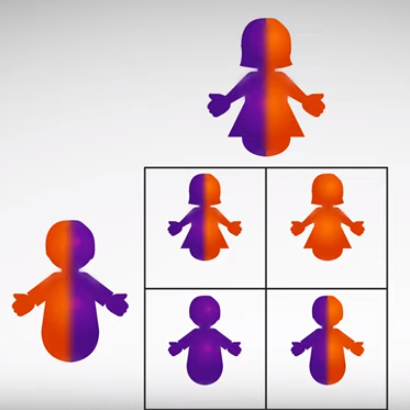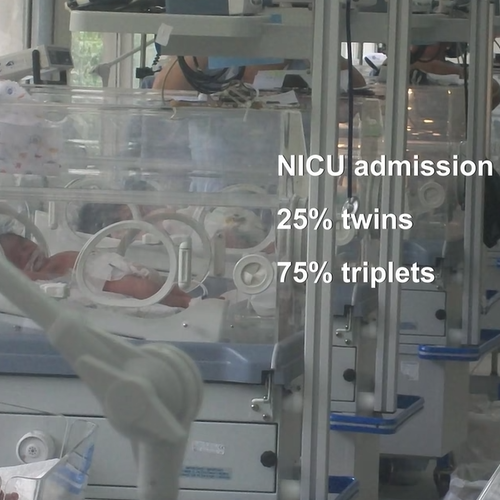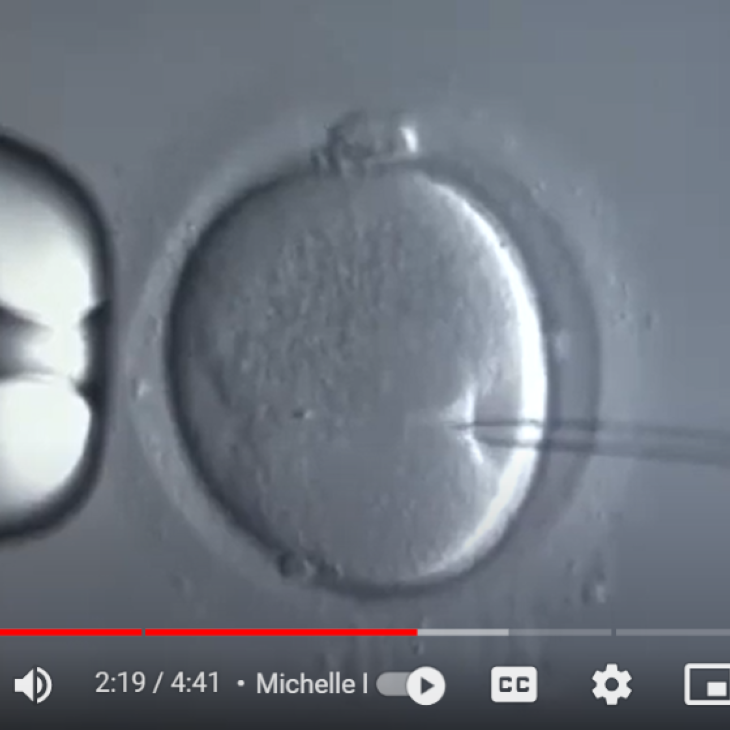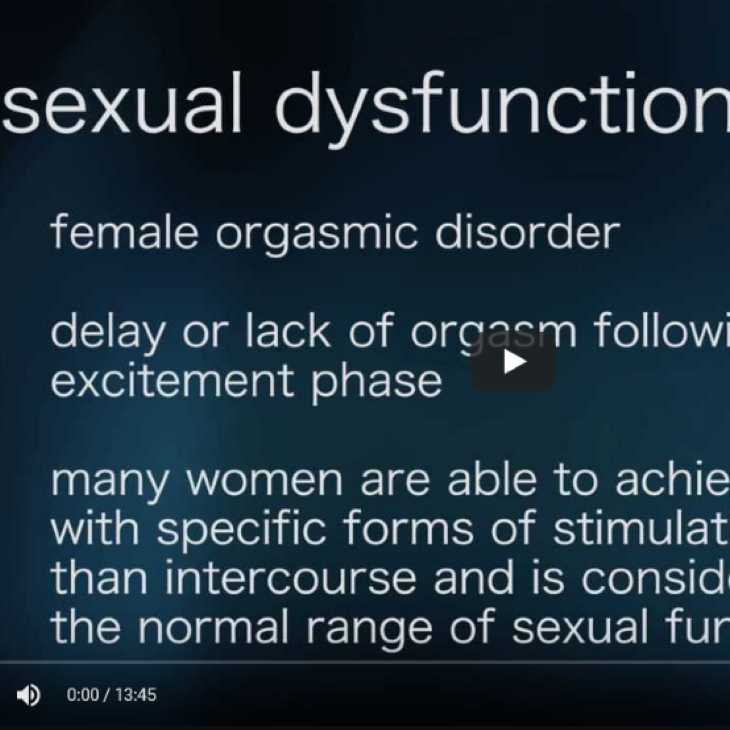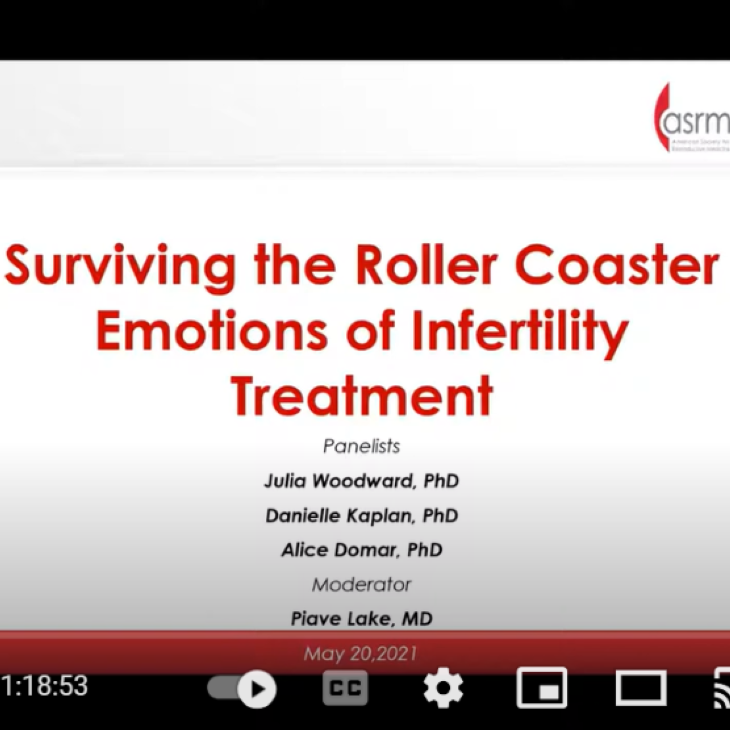
The Difference Between IUI and IVF
It is important to know Intrauterine insemination (IUI) or In vitro fertilization (IVF) can both be successful at helping grow your family.
Transcript
It is important to know Intrauterine insemination (IUI) or In vitro fertilization (IVF) can both be successful at helping grow your family.
With more couples across the U.S. turning to the use of fertility treatments and assisted reproductive technologies, one of the most common questions patients ask their fertility specialist is: what is the difference between IUI and IVF?
The answer isn’t always clear and depends on several unique factors. It is important to know Intrauterine insemination (IUI) or In vitro fertilization (IVF) can both be successful at helping grow your family.
Intrauterine Insemination (IUI)
Many couples choose to begin with intrauterine insemination (IUI) because of its significantly lower cost when compared to IVF. IUI typically runs anywhere from a few hundred dollars up to $2,000 per cycle, based on the fertility clinic, the type of medication used, the blood work, and follow-up that’s required.
However, IUI is considerably less effective than IVF, and couples may require multiple cycles before being able to conceive, bringing the overall expenditure closer to half the cost of IVF. In the U.S., the average cost of IVF is around $11,000 to $12,000, but again, IVF has considerably higher success rates than IUI.
What is IUI?
IUI is a simple office procedure that places sperm, collected from the partner and processed in the laboratory, into the uterine cavity. The "washing" of sperm in the lab removes seminal fluid (which can cause severe cramping) and concentrates the sperm. Placing the sperm higher into the uterine cavity bypasses the cervix and makes the passage to the fallopian tubes much shorter. The goal is to increase the chance that more sperm will encounter the egg.
IUI may be performed during a woman's natural ovulation which can be timed with over-the-counter ovulation predictor kits (OPK) or in conjunction with fertility medication received by the woman to assist in ovulation function
Who Can Benefit from IUI?
IUI can help couples when:
- A woman has ovulation problems and has not been able to conceive using ovulation-inducing fertility medication
- Fertility medication is used to increase the number of eggs a woman normally ovulates
- There are minor abnormalities in the sperm analysis (such as concentration, motility, and morphology or shapes of the sperm)
- Male partner has difficulty ejaculating
- The male partner has frozen sperm obtained prior to surgery or treatment for diseases like testicular cancer
- Donor’s sperm is being used to get pregnant
IUI is often considered as the first line of treatment for unexplained infertility, mild endometriosis, or mild male factor infertility.
In Vitro Fertilization (IVF)
What is IVF?
- A form of ART (assisted reproductive technology) in which a man’s sperm and a woman’s eggs are combined outside of the body in a laboratory dish
- A woman receives medications to stimulate her ovaries to develop multiple follicles with eggs
- A minor procedure under sedation uses transvaginal ultrasound to aspirate the follicles and obtain the eggs followed by same day sperm insemination
- Monitoring embryo growth to determine the optimal day & embryo(s) for transfer
Who Might Benefit from IVF?
In vitro fertilization is typically recommended for couples who have been trying unsuccessfully to get pregnant for one year and who display one or more fertility problems, such as:
- Blocked fallopian tubes from scarring or tubal ligation
- Lack of ovulation
- Extremely low male sperm count or low motility
- Advanced endometriosis
- Male partner with a history of a vasectomy
- Diminished egg supply and poor egg vitality
- Egg donation and/or IVF surrogacy
IVF is generally recommended for couples that have failed to conceive after three unsuccessful IUI cycles. According to the Society for Assisted Reproductive Technology, the IVF success rate in the U.S. for women of all ages is around 30 percent; however, when women under the age of 35 are taken into account, the IVF success rate are much greater.
Your Next Steps
Consulting a board-certified infertility specialist is an important first step in evaluating your unique fertility situation and determining the best course of action; Researching a clinic's success rates before committing to treatment can also help you in your decision-making process; And, contacting your insurance provide to determine your fertility coverage.
Videos
Resources For You
Intrauterine Insemination (IUI)
Side effects of injectable fertility drugs (gonadotropins)
Gonadotropins are fertility medications given by injection that contain follicle-stimulating hormone (FSH) alone or combined with luteinizing hormone (LH). View the fact sheetIntrauterine insemination (IUI)
When a woman conceives naturally, sperm travel from the vagina through the cervix, into the uterus, and up into one of the fallopian tubes. View the fact sheetIntrauterine Insemination (IUI) Infographics
ASRM has prepared infographics to illustrate the subject of Intrauterine Insemination (IUI) better. View the infographicsIn Vitro Fertilization (IVF)
ASRM Releases Congressional Scorecard
Discover ASRM's first Congressional scorecard, detailing positions of the 118th Congress on key reproductive legislation to guide ASRM members in elections.
View the Press ReleaseFertility Care Gets Important Win in California
ASRM celebrates California's SB 729, expanding IVF coverage for same-sex couples and singles, advancing equitable fertility care access.
View the Press ReleaseNation’s Leading Professional Group for Fertility Care Professionals Calls for Passage of Right to IVF Act
ASRM applauds Majority Leader Schumer’s decision to seek reconsideration of the Right to IVF Act.
View the Press ReleaseSART Fertility Experts - Vanquishing Multiples
Learn how a variety of factors such as geography, race, and the availability of comprehensive infertility mandates affect access to effective infertility treatment. Listen to the EpisodeTrump Calls for IVF Coverage, California Legislature Sends IVF Mandate Bill to Governor
The California General Assembly approved a bill mandating most private health insurance plans to provide coverage for In Vitro Fertilization (IVF).
View the Press ReleaseAdvocacy in Action
Join the ASRM Advocacy in Action campaign by making a tax-deductible charitable gift Be part of Advocacy in ActionGet Vot-ER Ready This National Patient Advocacy Day!
Celebrate National Patient Advocacy Day by boosting civic engagement! Order your free Vot-ER badge to help patients register to vote and promote healthy communities.
View the Press ReleaseSART Fertility Experts - Global Access to IVF and the Status of Women
Around the world, there are vast differences in the number of IVF cycles performed per capita. Learn why these differences exist. Listen to the EpisodeASRM marks World IVF Day by doing what we do best – advocating for access to reproductive health care by calling for a House floor vote on the Right to IVF Act
ASRM observed World IVF Day, the day marking the birth of the world’s first IVF baby in 1978, by continuing its advocacy for improvements in IVF policy.
View the Press ReleaseASRM Responds to Senate Vote on IVF Bill
ASRM is disappointed that a filibuster prevented the passage of the Right to IVF Act.
View the Press ReleaseASRM Calls for Passage of Family Building Bill
It would increase access to IVF treatments for all Americans, including active-duty service members, veterans, and federal employees.
View the Press ReleaseASRM publishes IVF one-pagers for media use
The documents lay out the clinical IVF process, summarize oversight of IVF in the U.S., and explain how lawmakers can support access to IVF.
View the Press ReleaseASRM Reacts to Cruz/Britt OPED
We are pleased to see Senators Cruz and Britt express their interest in protecting access to IVF.
View the Press ReleaseASRM Files Amicus Brief in Texas Embryo Case
ASRM has filed an amicus curiae (friend of the court) brief in the case of Antoun v Antoun, which is pending before the Texas Supreme Court.
View the Press ReleaseSurvey shows strong support for increased access to fertility treatments
A new public opinion poll reveals strong support for improved access to In Vitro Fertilization (IVF).
View the Press ReleaseSART Fertility Experts - Recurrent Pregnancy Loss and Implantation Failure
"I can get pregnant, but I can't stay pregnant," is echoed by patients with recurrent pregnancy loss. Listen to the EpisodeSART Fertility Experts - Navigating IVF as a Couple
Mary Casey Jacob, PhD is interviewed by Dr. Daniel Grow, and together they explore the emotional and practical support that couples need. Listen to the EpisodeFertility Rights and Responsibilities
Can a fertility program or clinic deny treatment to patient(s) if there is concern about the ability to care for the child(ren)? Yes. Fertility programs can withhold services if there are signs that patients will not be able to care for child(ren). View this Fact SheetProgesterone supplementation during IVF
Progesterone is a hormone produced by the ovary. View the fact sheetSide effects of injectable fertility drugs (gonadotropins)
Gonadotropins are fertility medications given by injection that contain follicle-stimulating hormone (FSH) alone or combined with luteinizing hormone (LH). View the fact sheetWhat do I need to know about conceiving after surgery on my Fallopian tubes?
Fallopian tubes connect the ovary (where the eggs are stored and grow) to the uterus (womb), where the fertilized egg develops into a baby (fetus). View the fact sheetHydrosalpinx
The fallopian tubes are attached to the uterus (womb) on the left and right sides. View the Fact SheetIn vitro fertilization (IVF): what are the risks?
IVF is a method of assisted reproduction in which a man’s sperm and a woman’s eggs are combined outside of the body in a laboratory dish. View the fact sheetWhat is In Vitro Maturation (IVM)?
In vitro maturation (IVM) is when a woman’s eggs are collected and matured outside the body. This is done as part of an in vitro fertilization (IVF) procedure. View the fact sheetSART Fertility Experts - Recurrent Pregnancy Loss
Candace discusses her experience with infertility, IVF, multiple pregnancy losses and ultimately a successful delivery with Dr. Julia Woodward.Listen to the Episode
SART Fertility Experts - Infertility Advocacy and Government Affairs
In today's episode, Dr. Mark Trolice interviews Sean Tipton about the fact that many infertility patients do not have insurance coverage for treatment. Listen to the EpisodeSART Fertility Experts - Behind the Scenes in the IVF Lab
Dr. Sangita Jindal, helps patients understand the importance of the IVF lab when choosing an IVF program. Listen to the EpisodeSART Fertility Experts - Your Infertility Nurse: Partner in Your Care
Infertility nurse practitioner and health coach Monica Moore explains the essential role of the infertility nurse in the IVF process. Listen to the EpisodeSART Fertility Experts - Genetics and IVF
Genetics is a significant part of advanced reproductive technology screening. Listen to the EpisodeIntracytoplasmic sperm injection (ICSI)
A procedure called intracytoplasmic sperm injection (ICSI) can be done along with in vitro fertilization (IVF) if a sperm cannot penetrate the outer layer of an egg. Read the Fact SheetSART Fertility Experts - Fertility and LGBTQ
In this episode, Dr. Daniel Grow interviews Dr. Mark Leondires, the founder of Gay Parents To Be. Listen to the EpisodeSART Fertility Experts - What is an REI?
These experts in infertility lead IVF programs, perform reproductive surgery, and perform research to enhance the field of reproductive medicine. Listen to the EpisodeSART Fertility Experts - What is IVF?
In this episode, we discuss the ins-and-outs of in vitro fertilization (IVF). Listen to the EpisodeStart with SART
The very first thing you should do when evaluating a clinic is verify that it is a member of SART. Watch VideoPreparing for In Vitro Fertilization (IVF): Lifestyle Factors
This SART micro-video discusses lifestyle factors that may affect in vitro fertilization, or IVF, outcomes. Watch VideoAssisted Reproductive Technologies (booklet)
This booklet will help you understand in vitro fertilization (IVF) and other assisted reproductive technology (ART) that have become accepted medical treatments for infertility. View the BookletThe Difference Between IUI and IVF
It is important to know Intrauterine insemination (IUI) or In vitro fertilization (IVF) can both be successful at helping grow your family. Watch VideoUnderstanding the SART Clinic Report
During this video we will discuss the SART Clinic Report concepts and demonstrate some of the report features. Watch VideoInfertility: an Overview (booklet)
Infertility is typically defined as the inability to achieve pregnancy after one year of unprotected intercourse. View the bookletKristen Ritchie's Story
I spent seven years navigating infertility, which was tumultuous but also a period of tremendous personal growth in hindsight. Read the storyIn Vitro Fertilization Infographics
ASRM has prepared infographics to illustrate the subject of in vitro fertilization (IVF) better. View the infographicsSART FAQ About IVF
Created by the Society for Assisted Reproductive Technology (SART) the following are answers to frequently asked questions concerning in vitro fertilization (IVF). Learn the factsIt takes more than one
Why IVF patients often need multiple embryos to have a baby View the advocacy resourceWhat support for IVF looks like
Bipartisan support for IVF, that is responsible for the birth of over 2% of all babies born in the USA each year, will ensure that families continue to grow. View the advocacy resourceOversight of IVF in the US
In the US, medical care is regulated by a complex and comprehensive network of federal and state regulations and professional oversight. View the advocacy resourceFind a Health Professional




